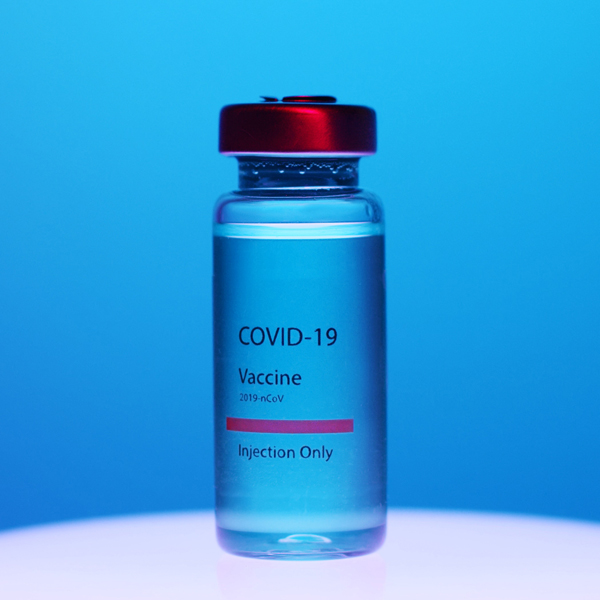During the month of March, we recognize National Nutrition Month. It’s a time for everyone to become more informed about the value of developing healthy eating habits.
Because so many members of our patient communities live with autoimmune diseases, we are especially concerned about how certain foods promote inflammation in the body. Foods that are highly processed, such as high-salt ready-to-eat meals, sugary cereals, high-fat processed meats, and sodas made with high fructose corn syrup are among the products nutrition counselors caution against.
If you’ve thought about how the foods you eat might be affecting your health, this might be the month when you experiment with trying something new. You can use the following ideas as guidelines for making wise food choices.
- Avoid processed and fast foods, including those with high fructose corn syrup, artificial ingredients, preservatives, and pesticides. Instead, opt for fresh food. Eat a variety of brightly colored fruits and vegetables and foods that don’t contain a long list of unpronounceable ingredients.
- Reduce the number of foods made with refined white flour and sugar, especially bread, pasta, and most packaged snack foods. Instead, choose foods made with whole grains, such as brown rice, bulgur, and quinoa.
- Try to eat less saturated fat by cutting back on animal products and foods made with palm kernel oil. This will help your heart as well as your immune system.
- Use extra-virgin olive oil and expeller-pressed canola, sunflower, and safflower oils.
- Experiment with adding avocados and nuts to your diet, especially walnuts, cashews, almonds, and nut butters made from these nuts.
- Eat more vegetable protein, especially from beans and soy, and choose fish, cheese, and yogurt more often than you choose meat.
- Avoid drinking soda and choose tea instead of coffee.
- If you drink alcohol, red wine may be preferable.
- And here’s the good news: dark chocolate (in moderation), can be a healthy choice! (Choose the kind with a minimum of 70% cocoa.)
If you take corticosteroids (prednisone, for example), especially in high doses and for long periods of time, you may develop side effects that have implications for what you eat.
- Prednisone increases appetite. To avoid weight gain, try to avoid high-calorie foods. Eating frequent, small meals can help maintain steady blood sugar levels so you don’t feel hungry. Getting plenty of exercise will also help.
- To reduce the risks of high blood pressure and fluid retention, try to keep your salt intake at less than 1,500 mg per day. You can do this by eating fresh rather than processed or canned foods and hiding the saltshaker.
- If you take medication for high blood pressure, you may need to eat foods high in potassium, such as bananas, apricots, cantaloupe, baked potatoes, and tomatoes.
- Prednisone can irritate the stomach, so it is important to take it with food, not on an empty stomach.
- Diabetes is also a risk when taking steroids. To keep blood sugar levels within the normal range, avoid foods high in simple sugars, such as fruit juice and those gooey pastries, and keep carbohydrate intake to between 45 and 60mg per day.
It may not be possible to get all the nutrients you need to be healthy from your diet. That’s where eating specific foods or taking supplements may be useful. The following suggestions are recommended for those who have autoimmune diseases.
- Bone health is a concern for those who take prednisone. That’s why it’s important to eat foods rich in calcium, such as milk, yogurt, cheese, leafy green vegetables (kale, bok choy), almonds, and broccoli. Calcium supplements may also be needed to minimize bone loss and osteoporosis.
- Vitamin D is a hormone produced in the skin in response to sunlight. It is also important for bone health as well as controlling inflammation. Because most people do not (and probably should not) spend enough time in the sun, most people need to take Vitamin D as a supplement.
- Folic acid (also called folate) is a B vitamin that is found in leafy green vegetables, such as spinach, kale, broccoli, and other foods. Because the drug methotrexate interferes with the way folic acid is used in the body, if you take this anti-inflammatory medication, you may need more folic acid than you can get from food. You may want to ask your doctor about folic acid supplements.
- Omega-3 fatty acids, which are anti-inflammatory, and omega-6 fatty acids, which cause more inflammation, should be in balance in the body to keep us healthy. Most Americans, however, eat much more omega-6 (found in vegetable oils, safflower oils, meat, poultry, and eggs), which causes a more pro-inflammatory state. Eating more foods containing omega-3 fatty acids, such as salmon, mackerel, sardines, leafy green vegetables, flaxseed, canola oil, walnuts, and enriched eggs, can help bring this back into balance. Omega-3 supplements are also available.
Of course you should always avoid foods that you are allergic to. And as always, it’s important to discuss diet with your healthcare providers to be sure they know that you are concerned about this important lifestyle habit and can guide you in making the best choices.

